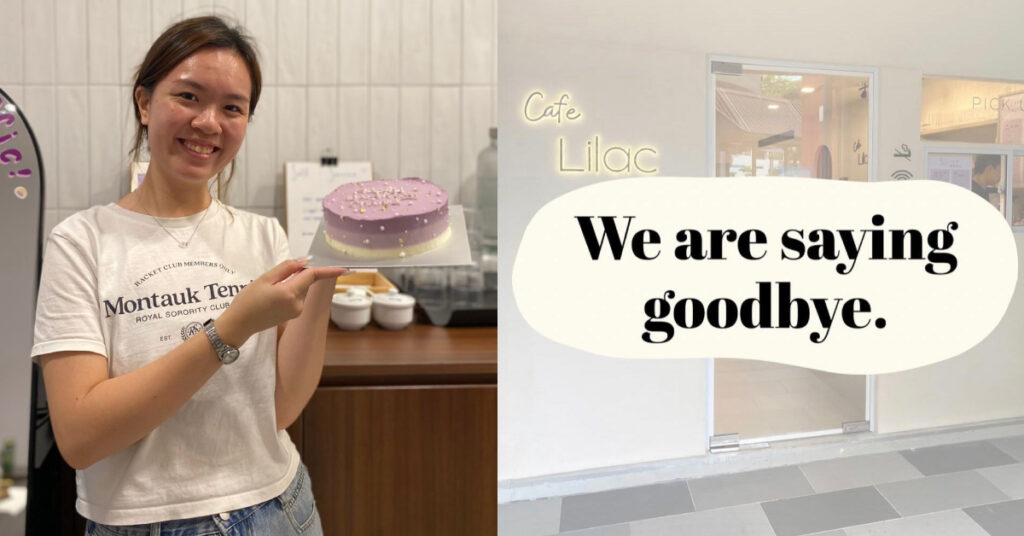When Filipina Mitzi Uy found her househelp crying one day, she never would have imagined that leading to a cross-border social enterprise, Mori.
Her househelp, a mother living away from family, was crying because her daughter was sick and she felt helpless at being unable to care for her.
This troubled Mitzi too as she believed all mothers should have the opportunity to look after their children while being financially independent.
It kept preying on her mind until she had a lightbulb moment—why not use her creativity to help other women by starting a social enterprise?
At that point, Mitzi had already created her own pursebook (a purse combined with refillable notebooks) and had received interest from friends.
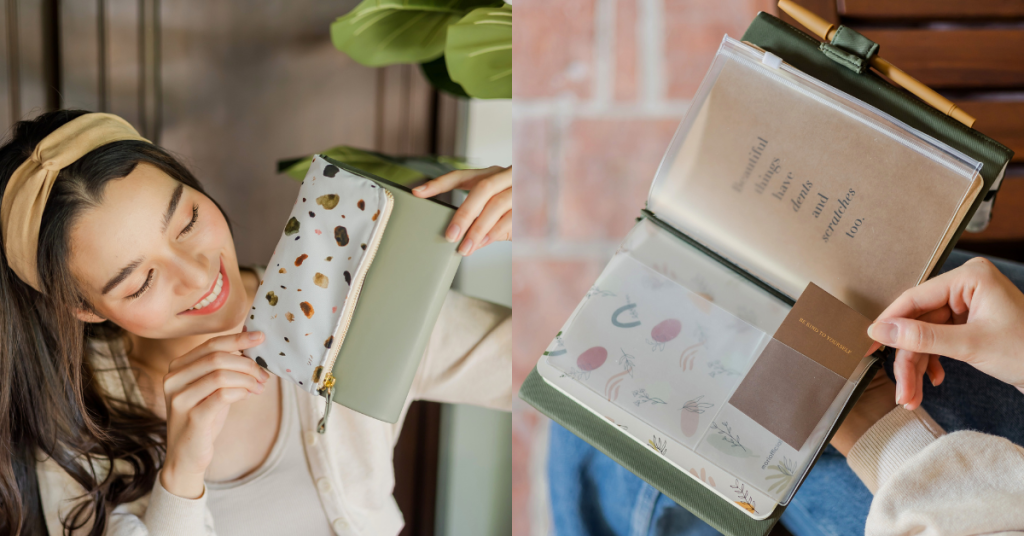
So she worked with her househelp to sew about 50 pursebooks and put them up for sale on Facebook. Much to her delight, the response was double their expectations.
From there, she reached out to Sikap Buhay (a Small Business Development and Promotion office in the Philippines) to connect with a Baranggay livelihood project. This allowed her to engage with women from poor communities in Manila who sewed washrags and potholders for a living.
Training mothers to be self-sustaining individuals
In a way, you could call it fate or a good coincidence. Mitzi’s home was close to the Baranggay community and the women themselves had some knowledge of sewing. She would frequently visit them and help upskill their sewing.
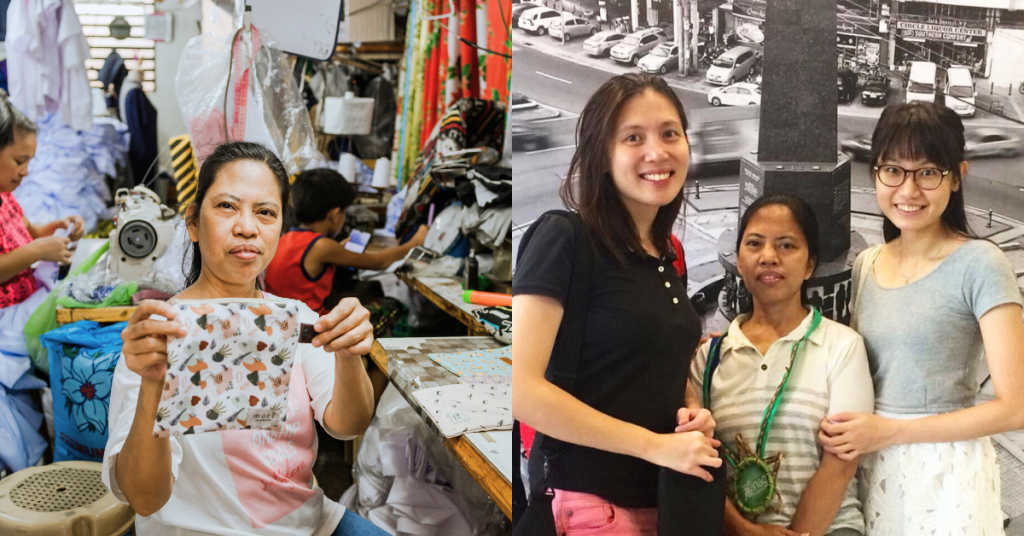
“We wanted to work with mothers to help out their families, because oftentimes single-income households [of] minimum wage isn’t enough to sustain the family,” the brand explained.
To ensure they make a decent living, the women are paid by the number of products they make and the rates align with the minimum wage set by the Department of Labour and Employment in the Philippines.
For example, in its earlier years, the minimum daily wage was at PHP382 so Mori set its base rate at PHP400. The more pieces they make, the higher their wages.
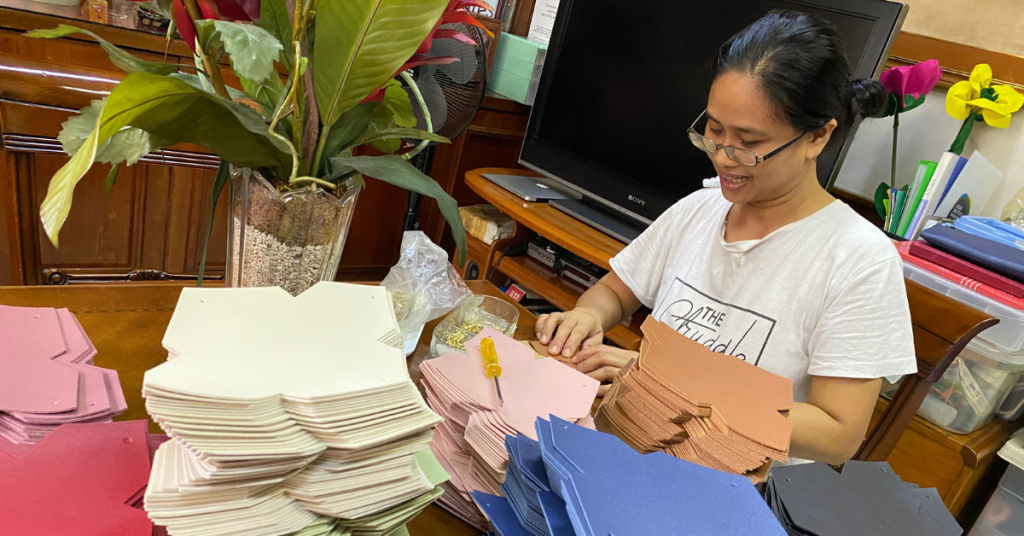
But it’s not just about the employment opportunity. Mori allows them to earn a living from home rather than working in a factory, so they can still take care of their children. There’s also flexibility during family emergencies and health issues.
With the support of the local government, slowly but surely, the social enterprise grew and the products began to be sold on Facebook and offline retail partners.
A collaboration between the Philippines and Singapore
Not long afterwards, Mitzi was approached by Rachel in Singapore who founded Matcha5, an online marketplace focused on supporting social entrepreneurship.
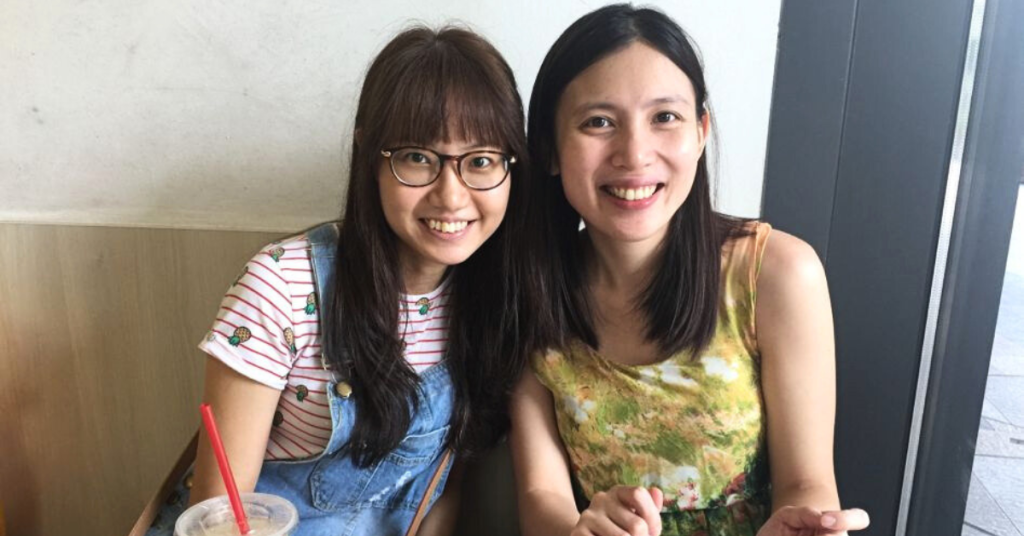
Wanting to connect further, Mitzi flew to Singapore. Long story short, they hit it off with the common dream of reducing poverty through fair employment and product value creation.
Thus began not just a friendship, but also the buds of a business partnership. While Rachel worked on product design and development, Mitzi worked with the communities in Manila to handcraft them.
Soon, the products were introduced into the Singaporean market, marking another milestone for Mori.
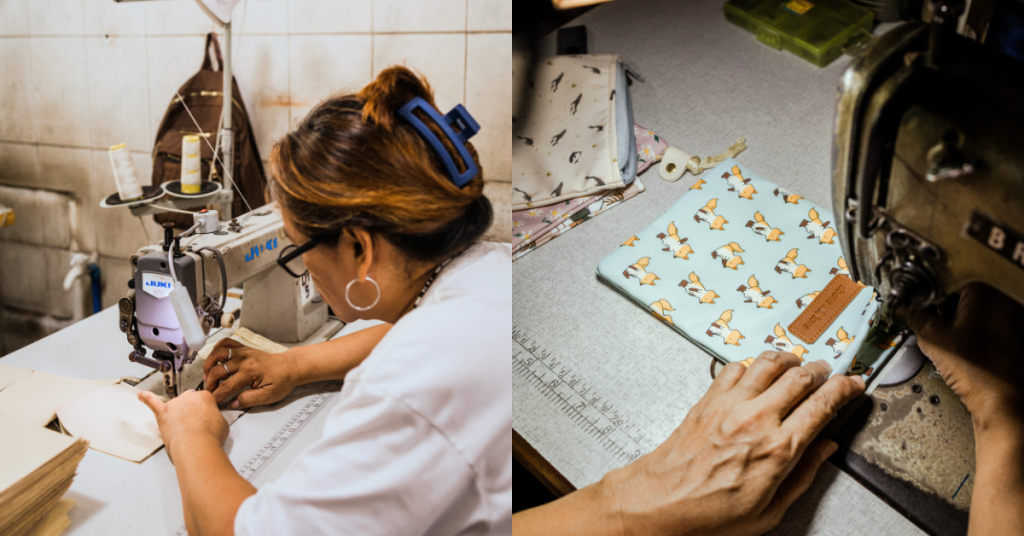
Then the pandemic hit just as they were making plans to expand the social enterprise further. But this turned out to be a blessing in disguise, as it led to more people self-reflecting, and caused a surge in demand for Mori’s pursebooks.
At the same time, having already been an online business made them one step ahead of the booming ecommerce trend. It was also this period when Mori launched its current best-selling item, the Dual Zip Sling Bag (from SG$48).
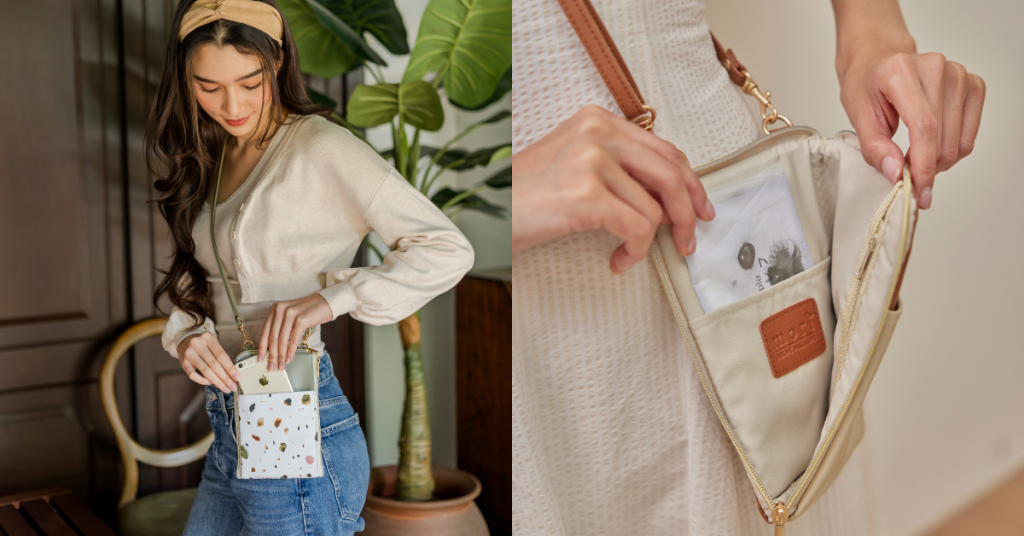
Expanding their social enterprise efforts abroad
The partnership aside, what makes Mori an international social enterprise is its commitment to helping women regardless of ethnicity and location.
For example, they recruited Miranda, a Singaporean mother of two, after she had trouble finding employment. Companies she interviewed at would often ask about her childcare arrangements and if she could commit to overtime work.
So she joined Mitzi and Rachel to help diversify Mori’s products. Aside from pursebooks and bags, the social enterprise now offers mummy and kids’ products under its new lifestyle arm, Mori Mini.
Part of this collection include the Portable Doodle Bag (SG$46), a modified adult pursebook, and a family-bonding activity box.

Similarly, they’ve trained and hired another Singaporean mum (known only as Madam S) to use Cricut machines and iron-on vinyls to personalise Mori’s products. She was referred to them by Fei Yue Family Service’s Thread of Courage.
Context: Fei Yue Family Service’s Thread of Courage is a non-profit initiative that enables lower-income individuals to earn a living from sewing opportunities.
Most recently, Madam S has also taken on the role of ecommerce order fulfilment in Singapore, which allows her to have a higher and stable monthly income.
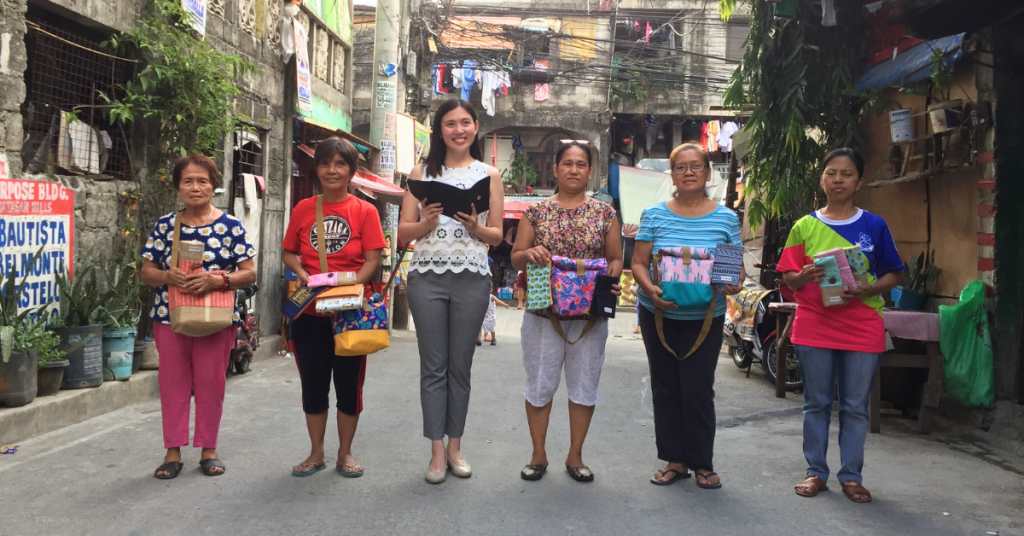
You don’t have to be “the right” person to spark change
As the business grows, the Mori team wants to explore other overseas markets like the USA. By expanding their reach, they hope to work with more communities and organisations to empower women.
They have far bigger ambitions too, such as creating workshops for training, offering consultancy services, and starting a platform to support womenpreneurs and their startups.
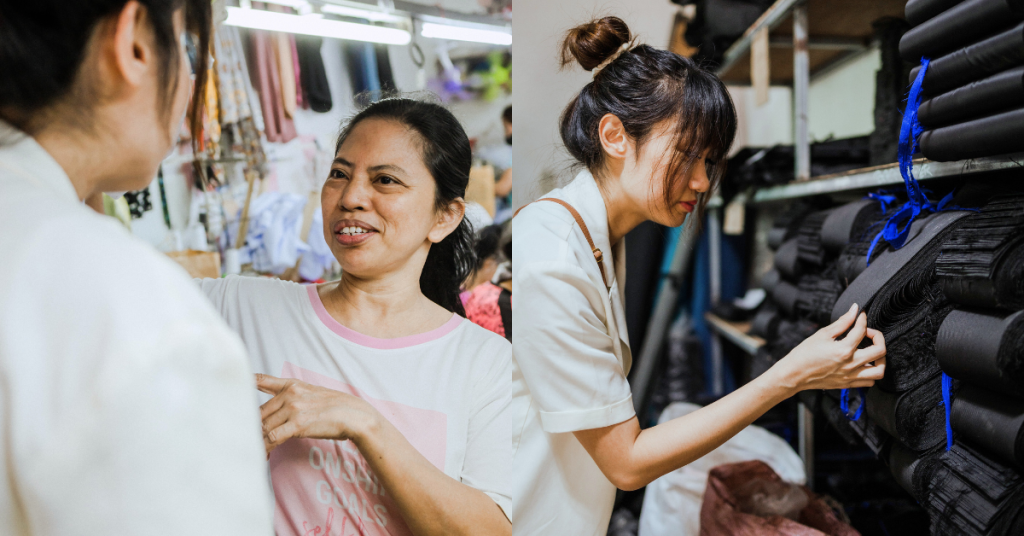
Speaking openly on the venture, Rachel explained, “For me, as I start to cross paths with more people in the social space, I start to hear and see that certain groups do require more resources, awareness, and help.”
In that light, Mirzi shared that it’s not so much about being “the right” person to support these communities. “I believe that a lot of us can create a business that has a positive impact on society. We all have people around us that are in need, whom we can bless.”
To her, it’s about utilising whatever means she has to help the people she can at that time. This is the philosophy that Mori has been upholding since the start too, and will continue to do so for years to come.
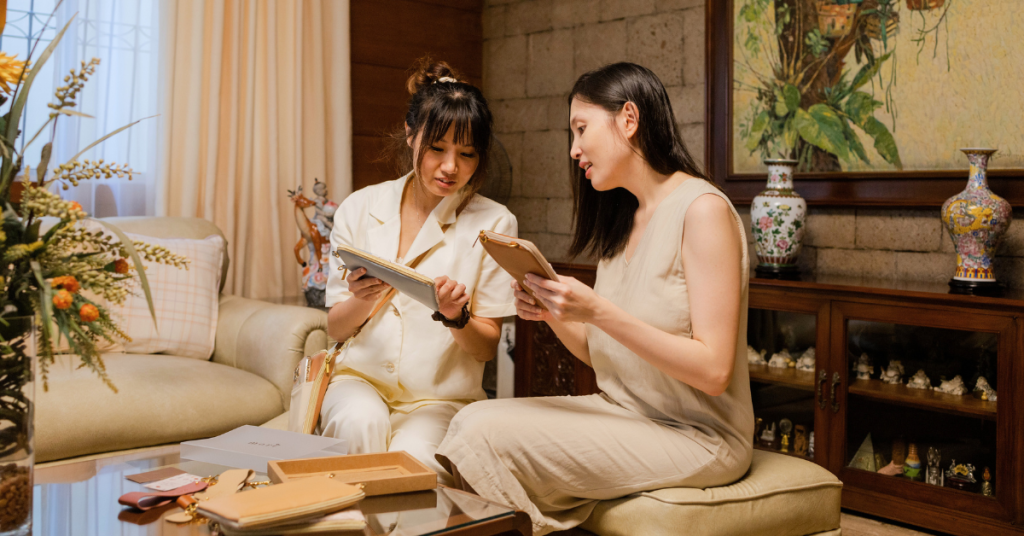
Featured Image Credit: Mori




